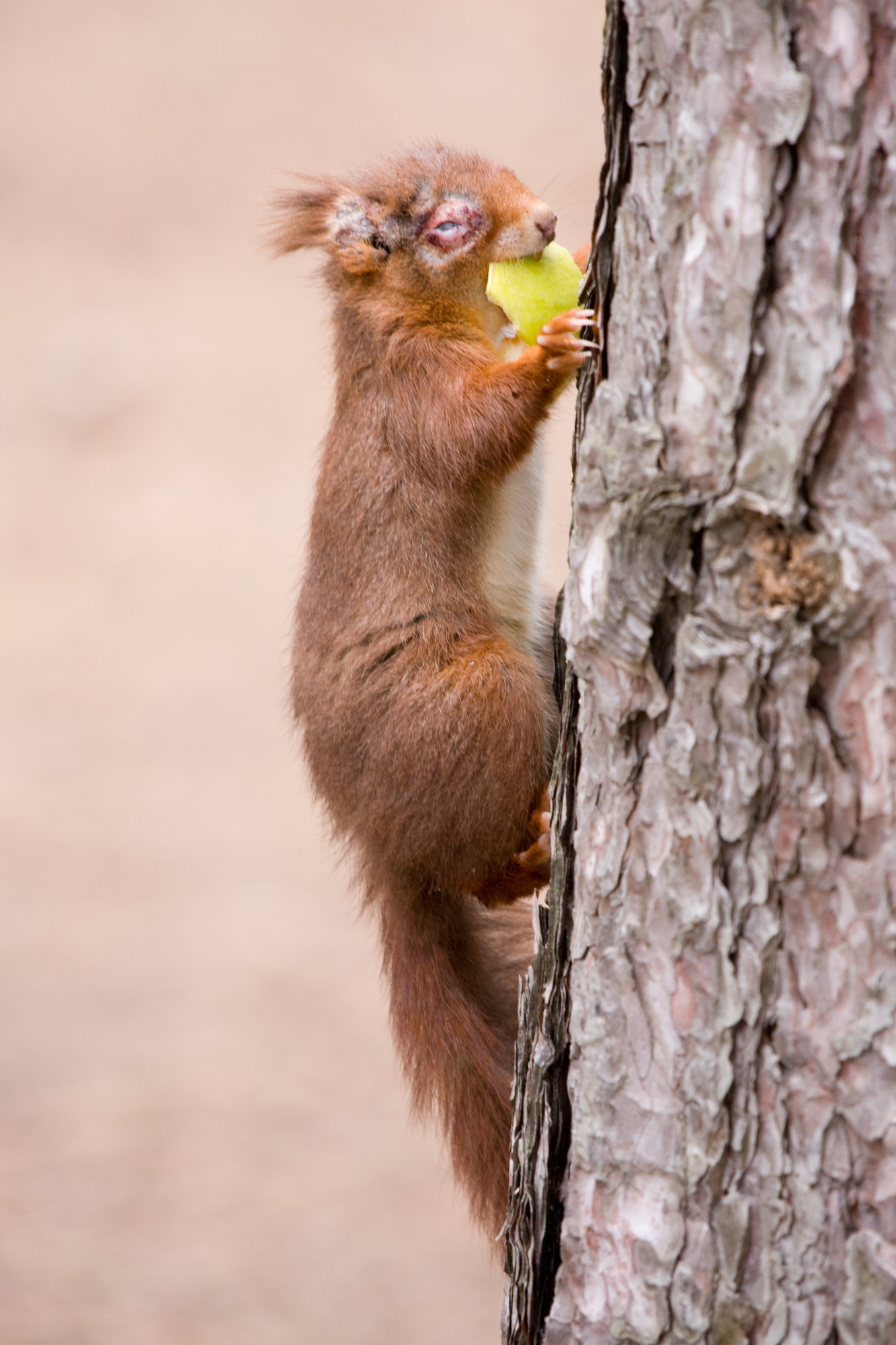ACTION is being taken after multiple reports of squirrels in the Lockerbie area with a suspected deadly disease.
Saving Scotland’s Red Squirrels say they have been alerted to a suspected squirrelpox outbreak at Johnsfield, with ten found dead.
And locals are urged to remain vigilant as this fatal disease could have serious consequences for the local red squirrel population.
Within the past few weeks, and over the festive period, several individual red squirrels have been spotted by members of the public which appear to display classic symptoms of the deadly disease.
The charity’s project officer Andrew Hodgkinson said: “We have deployed our emergency squirrelpox outbreak response measures, and as such locals can expect to see an increased staff and volunteer presence in the area as we increase grey control efforts in the region in a bid to stem the outbreak.
“This is a particularly vulnerable time for red squirrels, as they prepare for the upcoming mating season and increase contact with one another.”
Squirrelpox is a virus carried by grey squirrels which appears not to affect them but is often lethal when passed to red squirrels. Symptoms include weeping lesions on the face, paws and genitalia, which prevent the red squirrel from eating, drinking or moving. It is usually fatal within two weeks.
The first known outbreak in Scotland occurred in 2007 near Lockerbie and since then the disease has arisen in various red squirrel populations across the south.
Pox carrying grey squirrels are now considered to be widespread throughout South Scotland. However, targeted grey squirrel control work has ensured that the local red squirrel populations have successfully recovered.
Nicole Still, programme manager for Saving Scotland’s Red Squirrels, added: “It is devastating to learn of this squirrelpox outbreak. Members of the public can help by reporting all sightings of red and grey squirrels to us via our website, thoroughly cleaning all garden feeders with an anti-viral solution which is available from most local farm supply shops, taking feeders down for 2-4 weeks, and posting any dead red squirrel carcasses found to the Royal (Dick) School of Veterinary Studies for post-mortem analysis.”
People can report their sightings of both red and grey squirrels at scottishsquirrels.org.uk. Details for how to post carcasses to the Vet School and how to effectively clean feeders can also be found on the site.
Although squirrelpox is not considered harmful to humans, anyone who sees a sick red squirrel is advised not to approach it, but instead contact the project for advice.
Pictured: a pox infected squirrel. Photo by William Lee
























